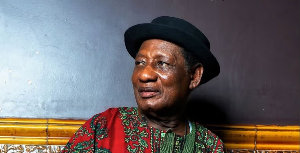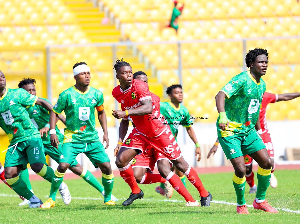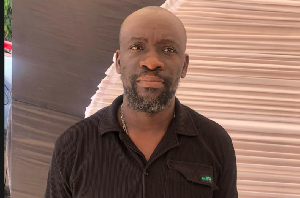Ghana will hold its general elections on Monday, December 7, 2020.
The election has been touted by many as one of the most competitive ever in the fourth republic mainly because the leading candidates of the largest political parties (NDC and NPP) have all had the presidential experience.
The candidate of the largest opposition party, National Democratic Congress, John Mahama, 61, who has occupied the top office for more than six years - first as Vice President and then as President - will be seeking re-election after his record loss to the incumbent president, Nana Addo Dankwa Akufo-Addo who is 76-years-old.
Akufo-Addo, Ghana’s current president and candidate of the ruling New Patriotic Party, on the other hand, had tried his hands at the presidency, twice in 2008 and 2012 before being successful the third time in 2016. He contested John Mahama twice and will contest him again.
This election will be the last time the country will ever see both men on the ballot.
Since President Akufo-Addo was elected, he has implemented several projects, some completed, others in various stages of completion and some yet to be started. However, key amongst them is the Free Senior High School policy which has been implemented “successfully”.
Despite some setbacks experienced during the implementation, the policy has been fairly described by the Deputy Minister of Information, Pius Enam Hadzide as one of the biggest social intervention programmes ever implemented by any government in the fourth republic. He claims that the policy has increased the number of SHS enrollment from 800,000 students to more than 1.2 million students since it was implemented in 2017. He sees this as a basis for them to be given a second term.
On the other hand, the opposition leader John Dramani Mahama is trumpeting massive infrastructural development as a trump card in this year’s polls.
Despite the severe political scandals that have hit both parties and candidates, they are confident their manifesto promises are the ultimate license to winning the presidency. It is the NPP’s “Leadership of Service” manifesto against the NDC’s “People’s Manifesto”.
What are their campaign promises?
Both candidates seem to have built their campaigns around people-driven policies. In this regard, it will be an interesting watch to see where people will lean.
Nana Addo Dankwa Akufo-Addo
Reeling from the success of the Free SHS policy that many believe got the incumbent into office, the president also announced a platter of other socialist interventions aimed at relieving the ordinary Ghanaian of some financial burden. They include: Consolidate implementation of the Free SHS and Free TVET programs; tertiary students can obtain a student loan without the requirement of a guarantor; implement the US$219 million Ghana Accountable for Learning Outcomes Project (GALOP) to improve the quality of education in low performing basic education schools and build 16 Model SHS in Zongo communities across the 16 regions.
The others are increasing resources and infrastructure for special needs education across the country, expand infrastructure to increase access to professional legal education, complete the provision of Wi-fi at all senior secondary schools and public tertiary institutions and training colleges.
He also brought relief to the majority of Ghanaian homes as the country battled with the scourge of the coronavirus pandemic opting to pay part of utility bills (water and light).
Despite the number of challenges that have plagued the country within the last four years, the ruling party has vowed to tackle the housing situation in the country – an issue that has overwhelmed middle income and lower-middle-income earning citizens.
The Centre for Affordable Housing Finance in Africa estimates in the 2019 Housing Finance Yearbook that Ghana has a housing deficit of more than 1.7 million housing units, media platform Graphic.com.gh said.
This basically means that for every Ghanaian to own a house, the government will have to build two million houses.
The introduction of the National Rental Assistance Scheme (NRAS) is thought to be the government's solution. The projected goal by the government is to address the short to medium market failures in the renter segment of the housing market.
Daily Graphic said that through this scheme, the government will pay rent advance for individuals with verifiable sources of income directly to bank accounts of landlords. The individuals will then pay back the money to the government on monthly basis.
“It is expected that this intervention will take the rent advance load off the shoulders of many Ghanaians. It will also ensure a predictable rental income for landlords.
"Additionally, the government will be able to track rental incomes and apply the appropriate taxes,” the reports added.
The other promises include: Deepen and expand his one district one factory in diversity and national coverage, reduce the rate of government borrowing, digitizing Ghana, and more.
John Dramani Mahama
Former President John Dramani Mahama launched his 2020 election campaign in Sefwi Wiawso in the Western North Region on Tuesday, October 7, with a campaign promise hinged on the tag ‘Operation rescue Ghana’.
Speaking at the launch of his campaign, this were the words of the ex-president: “Today marks the beginning of victory for the people of Ghana who are all desirous for a change in the political leadership because of the worsening living conditions which they find themselves in…We have the moral duty to help stop this fake reality.
We have the moral duty to restore the truth because it is only the truth that can generate real prosperity for every Ghanaian.”
"This is our battle for Ghana’s future. Let’s embrace it as our very lives depend on it because Ghana deserves to be in a better place where everyone has the chance to thrive and prosper. We will rescue our country. feel it, believe it and let’s deliver it," he added.
One striking talking point that has driven his campaign is the promise to legalize the use of commercial motorcycles (popularly called okada) which was made illegal in his own tenure in 2012.
Besides that, the president will rely on his track record of infrastructural development as a weapon against his opponent. He has also pledged to continue and improve upon some of the innovative policies already introduced by this government.
This includes extending Free SHS to private schools and permanent employment status for those temporarily employed under this government.
The other policy promises are as follow: Absorb 50% of tertiary school fees, create one million jobs in his first term, remove the law banning salvaged vehicles, four months maternity leave/7 days paternity leave, give tax incentives to landlords to reduce rent advance, and legalize and regulate okada business.
What are Ghanaians saying?
With the polarized nature of Ghana’s political landscape, presidential elections are usually won based on how far any of the major political parties can convince the undecided voter.
However, a recent survey has shown that the incumbent President Nana Addo Dankwa Akufo-Addo enjoys a slight advantage over his biggest rival from the National Democratic Congress (NDC).
This is according to a pre-election survey by the Center for Democratic Development (CDD) conducted nationally between September 28 to October 16, 2020, to a representative sample of 2,400 adult citizens.
It said on its official website that the sample was distributed across regions and urban-rural areas in proportion to their share in the national adult population.
Continuing from where it started in the 2016 polls, the 2020 polls have given the incumbent a high mark due to his ability to deliver on his 2016 campaign promises.
The survey data which was published on Friday, October 30, said “NPP enjoys a significant advantage (15 percentage points) over the NDC when it comes to public confidence in the ability to deliver on campaign promises.”
The report also stated that the president got high grades with his handling of electricity, education, and the novel coronavirus that has claimed close to 400 lives.
For instance, the implementation of the free SHS program had 85 percent approval ratings from Ghanaians, followed by the revamping of the National Health Insurance Scheme, 66 percent, fighting the menace of illegal small-scale mining or ‘galamsey,’ 55 percent, one district, one factory, 48 percent and, the one village, one dam, 46 percent, Daily Mail said.
Other polls, however, show that some Ghanaians lean more toward the opposition.
The Ghana Election Poll conducted by GhanaWeb and the Africa Consumer Panel shows that if the election were held today, former President John Mahama would have garnered the most votes, according to results of the second wave of polls which ran online from July 1 to August 1, 2020.
33% of qualified Ghanaian adult voters out of the weighted sample of 2,055 would vote for President Nana Addo Dankwa Akufo-Addo while 62% would vote for John Dramani Mahama. Five percent of the respondents would vote for “other candidates”, GhanaWeb said.
Politics of Wednesday, 25 November 2020
Source: mynigeria.com
Ghana Election 2020: The battle of two presidents
Entertainment












